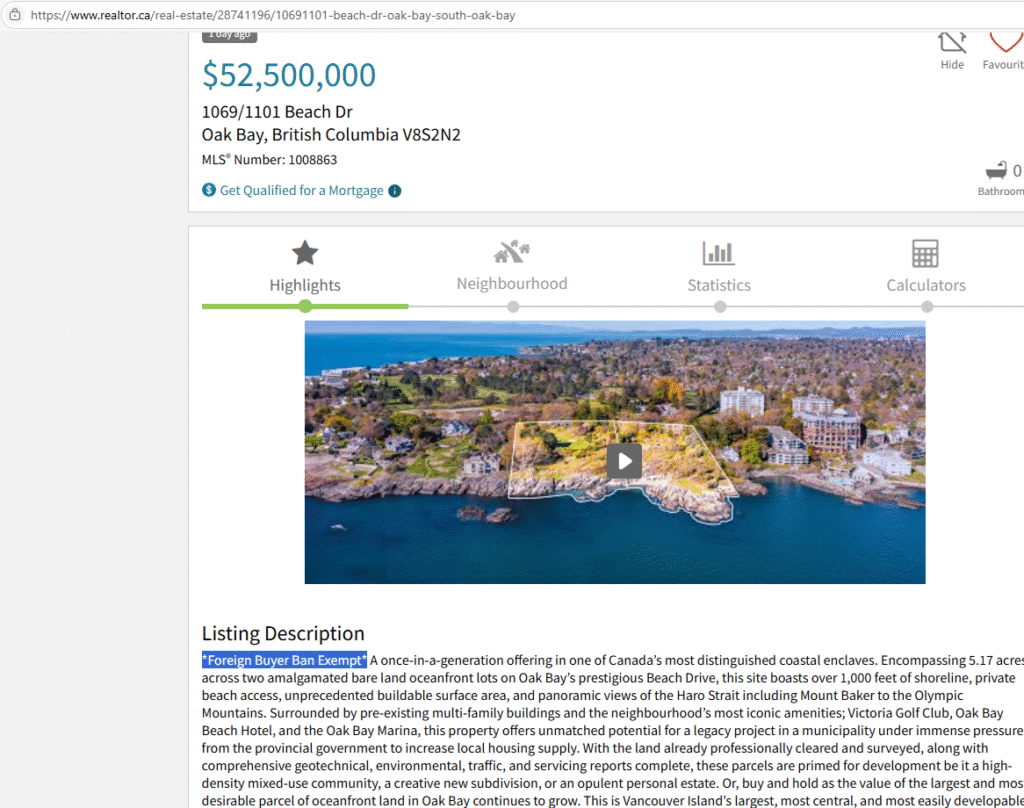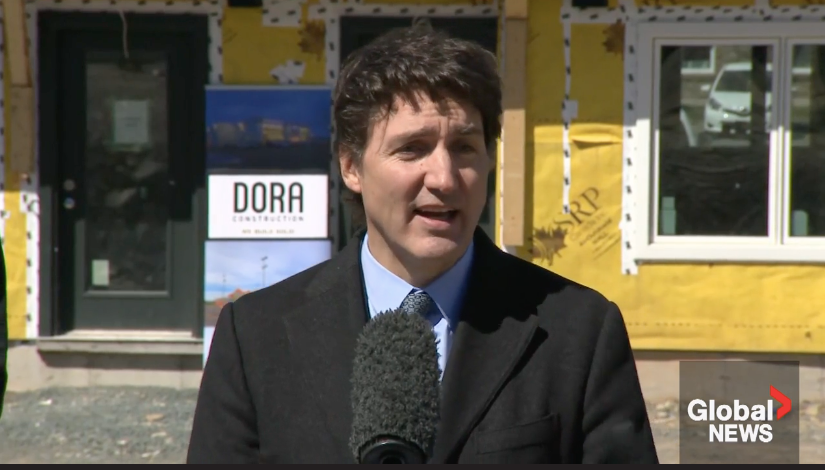In January 2023, the Trudeau government passed the Prohibition on the Purchase of Residential Property by Non-Canadians Act – a two-year foreign buyer ban. In February 2024, the ban was extended for another two years, and is now in place until January 2027.
The ban has proved popular, with a poll by Research Co. released in April revealing that 76% of Canadians support the legislation. Given this strong support from the Canadian public, it will likely be extended again – despite a recent lobbying effort from BC developers demanding that the ban be weakened to prop up declining housing construction amid the crash in Canada’s micro condo market.
Far from being too harsh, Canada’s foreign buyer ban could actually afford to be strengthened by patching notable loopholes to further limit the price inflating effects of foreign capital flows into our domestic housing market.
Here are four major loopholes that the federal government should patch to make housing cheaper for Canadians.
1. Inexplicably, international students and foreign workers can buy homes
International students and foreign workers are by definition non-Canadians. They are foreign nationals who are here in Canada on temporary visas – hence why they are classified as “temporary residents” rather than “permanent residents” or “citizens”. Nevertheless, both international students and foreign workers are exempt from the foreign buyer ban as long as they meet certain criteria.
A post on kelownarealestate.com titled How Foreign Buyers Can Purchase Homes in Canada Despite the Foreign Buyer Ban explains that international students can purchase residential property in Canada if they have filed five consecutive tax returns, and “have been physically present in Canada for 67% of each year for the five years prior to purchasing a property”.
The blog post goes on to explain that foreign workers can buy residential property provided their work permit has “at least 183 days of validity remaining on the date of purchase”.
2. The ban only applies to urban centres
According to the Canada Mortgage Housing Corporation, the foreign buyer ban does not apply to areas outside of Census Metropolitan Areas (CMAs) and Census Agglomerations (CAs). CMAs “must have a total population of at least 100,000, with 50,000 or more living in the core”, while CAs “must have a population of at least 10,000”.
You can use this CMHC map to check if your community falls under either designation, or if it does not and is thus exempt from the foreign buyer ban.

There are a number of startling exemptions, such as the Southern Gulf Islands, where I live. These islands are nearby the major metropolis of Vancouver, and have a fair number of high-value properties which foreign nationals could easily purchase to park large amounts of cash.
The real estate industry seems to be highly aware of this geographic loophole, with a post on the Victoria Luxury Group blog helpfully pointing out the “plenty of properties on Vancouver Island and around Victoria that are exempt” from the foreign buyer ban.
3. Apartments are exempt
The CMHC explains that Canada’s foreign buyer ban legislation defines residential property as “buildings with 3 dwelling units or less”. Thus, the ban “doesn’t prohibit the purchase of larger buildings with 4 or more dwelling units” such as apartments.
4. Vacant land is not covered
An August 17th post on CRD Watch exposed a “giant Elephant in the Room loophole” in Canada’s foreign buyer ban: vacant land is not included.
The post specifically points to an expensive bare lot listing in Oak Bay, Victoria described as “Foreign Buyer Ban Exempt”. After a bit of digging, Sasha Izard of CRD Watch found that vacant land is indeed exempt from the ban.

Izard goes on to outline the potential consequences of this major loophole:
“A number of countries prohibit non citizens from buying up land in the country, Indonesia being one such example.
The massive threat to ecology including coastal natural habitat loss, by such purchases if made, is well evinced by the listing in this article.
The loophole could potentially also incentivize developers to tear down existing buildings, in order to make properties eligible for being exempt…”
Don’t weaken the foreign buyer ban, strengthen it by closing loopholes
There are other loopholes to Canada’s foreign buyer ban besides the handful outlined above. For instance, “recreational properties” such as cabins and cottages are exempt – surely foreign cash can just as easily be parked in a nice cottage as a nice house, and surely we want cabins and cottages to one day be affordable again for young Canadian families. Going beyond buildings, the only limit on foreign purchases of farmland is a loose patchwork of widely varying provincial regulations – despite calls from farmers for federal protections.
That being said, closing these four loopholes alone would be a major step in the right direction, with the ultimate goal being to shut foreign capital out of Canada’s housing market. Far from weakening the foreign buyer ban, as BC real estate developers are demanding, it should be strengthened.
All content on this website is copyrighted, and cannot be republished or reproduced without permission.
Share this article!





I do not agree with this. I cannot believe how Canada allows so many immigrants to be supported and favored. Those in government and not speak up.